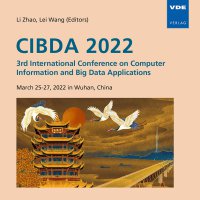NLS-based Analysis of psychological semantic differences between the Song Dynasty after Jingkang Incident
Konferenz: CIBDA 2022 - 3rd International Conference on Computer Information and Big Data Applications
25.03.2022 - 27.03.2022 in Wuhan, China
Tagungsband: CIBDA 2022
Seiten: 5Sprache: EnglischTyp: PDF
Autoren:
Zhao, Xinsi; Zhu, Tingshao (Institute of Psychology, Chinese Academy of Sciences, Beijing, China & Department of Psychology, University of Chinese Academy of Sciences, Beijing, China)
Inhalt:
In the era of big data, natural language processing technology is the key technology for efficient data acquisition. This paper conducted a difference analysis into the self-expressive writings by representatives of the Northern Song and the Southern Song with the CC-LIWC, a big data-powered classical Chinese analysis tool. Dividing the self-expressive writings into two groups, we first computed the frequencies of different categories of words used in the two groups; then we tested significant differences of these categories of words, from which we found 14 categories of words with significant differences. These 14 categories of words are classified into function words, interrogative words and content words. Based on the psycholinguistic implications of these categories of words, we found that compared with the Southern Song, the Northern Song was more socially and culturally prosperous and was more supportive for academic questioning and discussion, as function words were more frequently used in Northern Song writings. In addition, male words and work words were also more frequently used in Northern Song writings, while body words were more frequently used in Southern Song writings. These findings reflect differences between the Northern Song and Southern Song in the aspects of academics, work, lifestyles, population, etc. Such a psycholinguistics-based difference analysis captures the psychological changes of people, which can help explore the social and cultural evolution across time. Using a large volume of writings as the research object, this method can help overcome the shortcomings of previous researches that usually focused on scattered information, thereby making the analysis results more objective.


